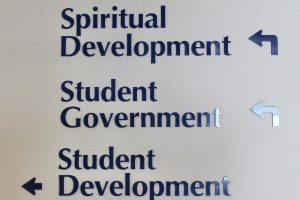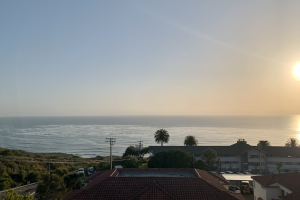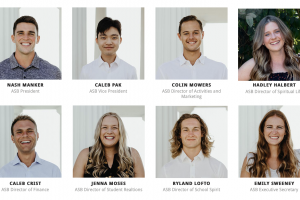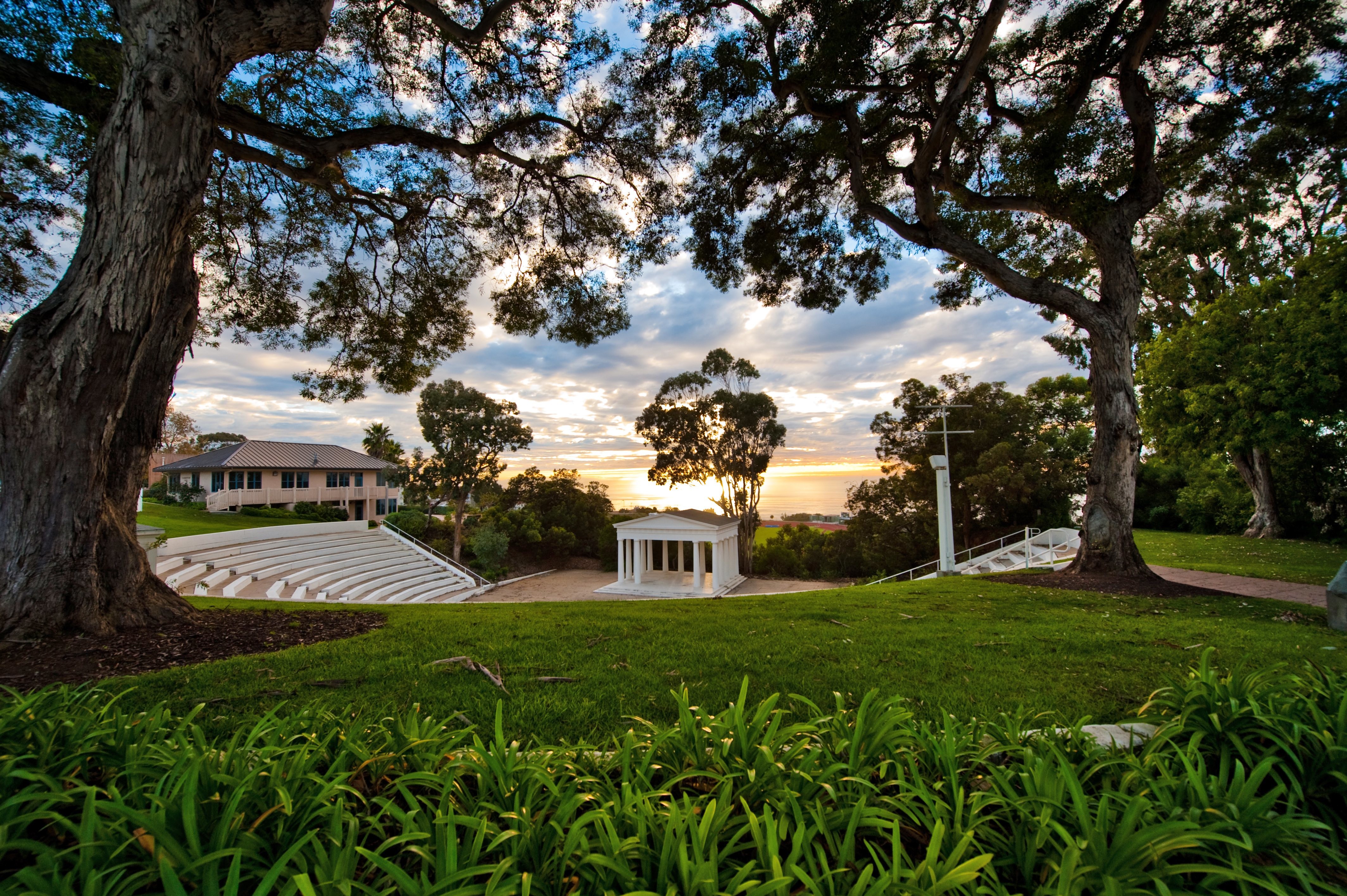The Associated Student Body will cut $60,000 from Media Board next year, shifting responsibility of the funding to the university and the respective departments.
ASB President mcKensey Wise, in a recent letter to all of Media Board and in a letter to the student body published in last Monday’s opinion section, outlines the changes that the Media Board is facing on PLNU’s campus.
The letter explains that ASB will be less involved with funding Media Board, collectively The Point, The Mariner, Driftwood, Point T.V. and Point Radio, and next year will only contribute $40,000 of their previous $100,000 to Media Board. The $60,000 gap in funding will now fall to the Department of Communication & Theatre and Literature, Journalism & Modern Languages (LJML).
Wise believes that she and the ASB Board of Directors see the advantage of student media; but that they also feel they are unable to adequately make decisions for Media Board funding.
“We value the educational benefits of the Media Board and do not want to see the board suffer due to lack of funding,” said Wise in her letter. “Communication and Journalism professors are able to better distribute the funds of each branch than ASB students who shift from year to year.”
This considerable loss in funding will most likely impact student editors’ stipends. The positions, will either be severely underpaid or completely volunteer if the two departments are unable to come up with the needed $60,000.
The various factions of Media Board will have to start by splitting the $40,000 they have been guaranteed for next year.
The breakdown, explained in an email by Wise, would be as follows:
The Point: $20,000
The Mariner: $10,000
Driftwood: $5,000
Point T.V.: $3,500
Point Radio: $1,500
Printing costs for a given issue of The Point range between $800 and $1000. The Point publishes around 12 issues per semester.
The Mariner relies on ASB funding to keep prices low for seniors and other students buying yearbooks. If funding were cut, prices would go up, above the current $20 cost, or the yearbook might have to be an online-only publication.
“We have a fairly small budget, but even with the generous help of our benefactors, we will not be able to publish a physical copy for more than two years and the legacy will die,” explained Editor-in-Chief of the Driftwood, Elizabeth Pode.
Pode and other Media Board staff were informed of the funding cuts to their publications via email only. Their involvement in the process was little to none. He wrote a letter, titled “ASB Breach Report” regarding possible ASB infractions of their constitution.
“The ASB Board of Directors never informed or collaborated with the corresponding editors of each Media Board publication until they had already held a vote on the corresponding proposal,” said Christian Berk, co-Editor-in-Chief of the Driftwood with Pode. “Therefore, the ASB’s proposal in no way took place ‘after’ collaboration with the corresponding editors of each Media Board publication.”
This may fall in direct conflict with ASB’s constitution that outlines in Article VI Section 4B that there must be “significant collaboration with the corresponding individual[s]” to which the changes are being made:
“‘Proposals’ shall be a formal proposition made to a department, organization or administrator on behalf of the student body suggesting a step-by-step process to invoke a change or new policy on PLNU’s campus. This will only be proposed after significant collaboration with the corresponding individual and research done in the areas of student interest and financial potential.”
Wise and Guajardo did not respond to these concerns in the meeting.
After the email by Wise was sent out, Wise and Nate Guajardo, ASB Director of Student Relations and Media Board liaison, met with all of the Media Board editors to discuss recent events, aside from Ross Nederhoff, who met individually with Guajardo because of his work schedule. Wise said the goal of this decision by ASB was to put the decision-making power back in the hands of the departments.
“It’s no longer the responsibility of ASB to divvy out stipends,” said Guajardo. “That’s going back to the departments and that was based on four years of data.”
For Editor-in-Chief of The Point, Katie Callahan, on of the main concerns was the lack of Media Board participation throughout this process. Callahan felt that ASB made decisions with the university and then told Media Board rather than allowing them to be a part of the whole process.
“I wish members of the ASB had met with their faculty advisers for input and counsel before making this decision. I would have encouraged everyone to consider whether the decision conflicts with the ASB Constitution,” said Callahan.
The meeting covered the areas where Media Board would be losing financial support from ASB, where those finances would be going and gave Media Board members a chance to explain to ASB the implications of these changes.
The money allocated to maintain all the stipends for the editor positions and the operating costs for Media Board in a year comes to $100,000. These funds are split into two basic categories: the $60,000 required for stipends and the $40,000 required for operating costs.
ASB has cut funding down to $40,000 and handed jurisdiction of all Media Board funds over to their respective departments. Now it will fall to the departments spread out that $40,000 to cover stipends and operating costs. The concern for Media Board is that instead of picking up the additional $60,000 to continue to pay editors their stipends, departments will pull stipends altogether and only continue to cover the operating costs using the $40,000 the university gives them.
“You have to understand that we won’t attract anyone to become an editor without the stipend,” said Pode. “This is a huge cut to us. The reality is there has to be a stipend [to have an editor], and you won’t have production without an editor so any of these programs will end without a stipend.”
ASB plans to put the extra funds they are no longer using toward Media Board back into school activities and initiatives, like donating toward disability access in the Greek.
“The main issue with stipends is that it is paying students to do work that they are getting course credit for,” said Wise. “ASB is funded by students for the benefit of the entire student body and we don’t pay for any other internship type things or compensate any other students for their course work.”
For Pode and Callahan, the one unit that they receive, however, did not match up with the amount of work they put in during the week. The stipend is what helps to compensate for the time spent on their respective publications every day.
“I work 40 hours a week,” said Callahan. “That one unit covers maybe a one hour interview [but] what about the other 39?”
Most of the editors don’t need that one unit and some are even taking it as an 18th unit at their own expense just to be able to work on the publication explained Pode. The stipend she receives is one of the reasons she did not go out and work at a part time job.
For the Driftwood in particular, these cuts represent the potential shutting down of PLNU’s only literary magazine. Pode and Berk have already spoke with their department and found that if the university’s $40,000 were the only funds that LJML was willing to continue to contribute to the Driftwood, at its current operating costs, including the editor stipends, the magazine would be shut down in two years.
“We want these things to survive,” said Guajardo in response. “But at the same time you guys are getting work experience and your staff are taking it for credit, and we don’t [compensate] that for anybody else. If you guys are concerned about losing stipends, go petition to your advisors.”
Guajardo said though the concerns of Media Board are valid, they are no longer the concerns of ASB. He explained that ASB’s lack of experience with Media Board tasks is one of the reasons that the board voted to hand power to the departments, where they feel these concerns can be better dealt with.
For Callahan this means less of a student-run publication. She explained that her advisor’s lack of involvement week-to-week in the editing of The Point is a positive thing and one of the reasons that it remains a true student publication. Her concern is that more departmental oversight or university involvement means more control over a publication that has previously been independent and funded by students for students.
Most of Media Board will look to their departments now to understand how funding will be distributed in the coming years.
“$100,000 is not a sustainable amount for ASB to take on every year,” said Wise, who is confident in the ability of departments to respond to this change.
“We have been talking to the professors in [departments] and they have responded positively to the change,” continued Wise. “Kerry Fulcher and George Latter are [also] confident that these decisions will not shut down Media Board.”
Provost Kerry Fulcher and George Latter met with the faculty advisers and department chairs to the Media Board early Friday afternoon. Dean Nelson, a professor of journalism, could not attend this meeting because of the Writer’s Symposium events.
“It is too early to know what the impact will be,” said Kerry Fulcher in an email to The Point. “We are working through the information that ASB gathered and the rationale for their financial figures and we are looking to external sources to see what other universities similar to us do in support of their media boards.”
Editors will discuss monetary changes with ASB next week to propose a respective budget for their departments and refer to their departments for the ramifications of this decision on next year’s media and student body.







